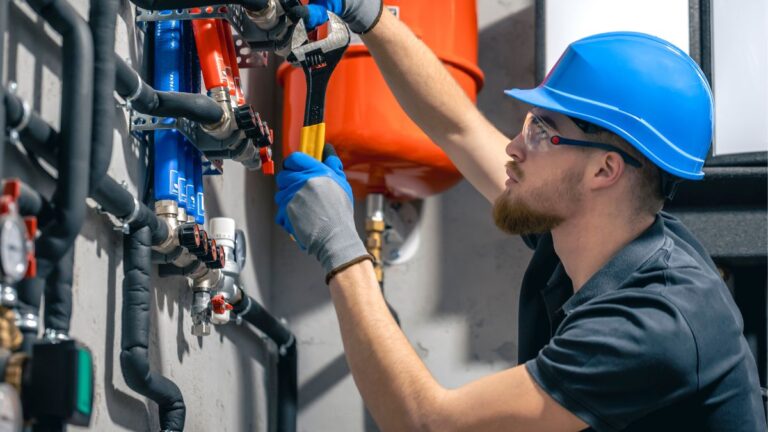Today’s plumbing industry bears little resemblance to what it was a decade ago. As building standards, technology, and client expectations shift, so do the requirements for new plumbers entering the field. While the basics—fixing leaks, installing pipes, and ensuring safe water delivery—remain essential, contemporary programs are packed with new skills and subject matter. By investigating programs such as https://abcksmo.org/education/plumbing-program/, it becomes clear how modern training merges classic trade skills with updated curricula touching on sustainability, smarter systems, and evolving code compliance. Plumbing has evolved from a static trade to a dynamic field addressing aging infrastructure, climate change mandates, and energy-efficient innovations. Employment opportunities are steadily increasing. The U.S. Bureau of Labor Statistics projects that demand for plumbers, pipefitters, and steamfitters will outpace the average for most jobs due to new construction, maintenance, and eco-friendly plumbing solutions. Training programs must now equip students for the evolving landscape of the plumbing industry, ensuring that education is both essential and progressive.
Foundational Skills: Beyond Just Pipes
Plumbing education has evolved to provide comprehensive training that covers basic skills in tool usage and safety, as well as advanced topics such as measurements, materials science, and mathematics critical for plumbing tasks. Programs emphasize diagnostic skills and a solution-oriented approach, preparing graduates to analyze systems, solve problems, and take proactive maintenance measures. As a result, they become adaptable professionals ready to work in various settings, from homes to industrial sites.
Hands-On Learning: Apprenticeships and Simulated Labs
Effective learning in the plumbing field depends on the opportunity to gain hands-on experience. That’s why leading plumbing training programs prioritize apprenticeships and real-world experience. These apprenticeships, often essential for licensure, enable students to work under the guidance of master plumbers, gaining exposure to the unpredictable challenges and scenarios that can’t be covered in a classroom setting. Valuable lessons are learned on construction sites, during emergency repairs, or through new system installations, instilling confidence and resilience.
Simulated laboratories complement this by recreating challenging job-site environments, providing students with an invaluable space to develop technique, speed, and teamwork. Here, students might work on mock-ups of multi-level plumbing systems, undertake repairs in simulated confined spaces, and practice essential safety protocols. By integrating simulation with mentorship, programs produce graduates who are job-ready and able to keep up with fast-moving projects.
Technological Innovations Today
Today’s plumbing trade relies on new tools, such as thermal imagers and pipe cameras. Students learn to operate digital plumbing systems, analyze computerized blueprints, and use smartphone apps for calculations and documentation. Some curricula cover the basics of programming for smart water management devices and automated fixtures, reflecting the demand for “smart” home installations.
The push for efficiency and modernization is evident in industry trends. As noted in the magazine’s future, professionals are increasingly working with rainwater harvesting, touchless fixtures, and IoT-enabled leak detection. Plumbing education has evolved to ensure graduates can adapt to and install these technologies, distinguishing them in a competitive field that values technical adaptability.
Sustainability: A New Priority
Plumbing has a direct impact on water consumption and environmental protection. That’s why sustainability and conservation are central to contemporary training. Programs now require in-depth knowledge of water-efficient appliances, low-flow fixtures, and energy-saving water heaters. Students gain practical experience assessing systems for leaks, retrofitting outdated installations, and helping property owners reduce consumption—skills in high demand as cities and states increase environmental regulation.
Modern codes rapidly evolve to meet sustainability requirements, and staying up to speed on these changes is a core part of high-quality plumbing education. Trainees are expected to recommend environmentally friendly materials and utilize techniques that conserve water and energy on every job site. In the long run, this not only benefits the planet but also reduces costs for clients, while enhancing plumbers’ professional reputation and marketability.
Developing Professional Skills
A technical expert doesn’t distinguish a successful plumber from a novice. Today’s programs also prioritize effective communication, exceptional customer service, and efficient project management. Soft skills are vital for resolving issues effectively with contractors, managers, or clients. Many programs include mock consultations, teamwork scenarios, and conflict resolution to ensure plumbers excel with people as much as with pipes. Business and entrepreneurial skills are increasingly important. Training covers quoting jobs, managing contracts, supervising teams, and starting businesses, preparing plumbers for career shifts. This comprehensive approach fosters sustainable growth, enabling tradespeople to contribute to their communities by providing essential services and employing others in the process.
Career Pathways and Long-Term Prospects
Plumbing offers diverse, resilient career paths. Graduates can work in residential, construction, or industrial settings and can advance to roles such as project managers, estimators, or inspectors. Some develop a passion for specialized systems, such as hydronics, medical gas, or green building consulting, and pursue further certification. The adaptability of these professions ensures that jobs remain available even during economic downturns, providing security unmatched by other fields.
For those with entrepreneurial ambitions, starting an independent business is a natural next step. Running a plumbing company or consulting service is more accessible with leadership and management skills taught alongside hands-on techniques. From job security to ownership, plumbing provides long-term potential for financial stability, growth, and personal fulfillment.
Choosing the Right Program
Investing in quality plumbing education lays a solid foundation for a rewarding and future-proof career. Students should seek programs that blend innovative classroom instruction with extensive practical training and apprenticeships. Curricula that incorporate technology, sustainability, code compliance, and professional development prepare graduates to excel in a world defined by efficiency, technology, and sustainability. Strong plumbing education positions students as future leaders in the field. Well-trained plumbers are vital in every community, providing expertise, safety, and value where pipes and water converge.

